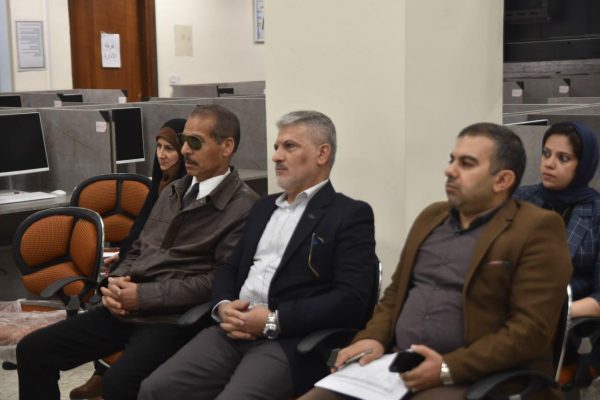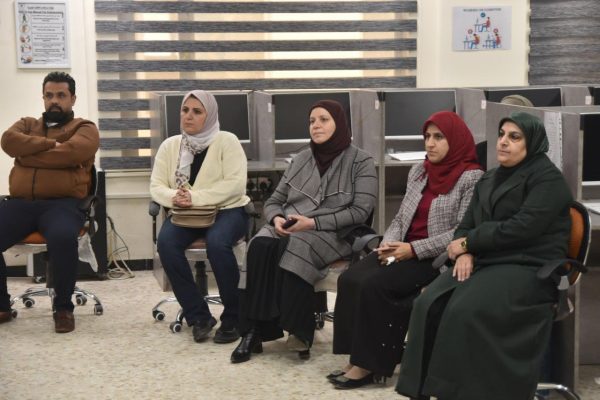Under the patronage of the Dean of the College of Science for Women , Professor Dr. Sameera Naji Khdim, the Rehabilitation and Employment Unit, in cooperation with the Department of Mathematics, organized a scientific workshop entitled (Seagull Knot) presented by Dr. Ahmed Zeini Al-Yasiri, Assistant Professor Dr. Nadia Muhammad Jawad, Assistant Professor Dr. Farah Jawad Kazim.
The workshop aimed to introduce the concept of the seagull knot, which is one of the central concepts in knot theory, which studies the formation and interaction of knots and the complex geometric shapes that they can form in three-dimensional spaces. Initially, a knot is defined as a closed path in three-dimensional space that can be intertwined or twisted in a certain way, but without cutting itself. The workshop addressed the different methods for generating these knots and explaining their behavior using mathematical equations and complex geometric models.
As the generation of mannequins from knots, which refers to the idea of creating geometric shapes, directed surfaces, or complex curves starting from a specific knot in space, for example, the workshop mentioned the use of the knot concept to generate non-linear curves or complex deformation surfaces that can be studied using modern mathematical tools such as radial analysis or geodesic surfaces. This generation depends on the properties of the knot and its complexity in space. The workshop emphasized that the applications of studying knots include many fields such as fluid physics, where knots can be used to understand complex flows such as water currents in rivers or oceans, as well as in biology to understand the interaction of proteins or other molecules that are intertwined with each other in cells. Knots can also be a model to explain natural phenomena such as swelling and deformations in solids or liquids.
As for hemology in the study of knots, it is a branch of mathematics concerned with studying the properties of knots that remain constant under continuous transformations.
In general, the study of knots provides a framework for understanding complex phenomena that occur in nature, engineering and physical sciences. These studies help in developing mathematical models that explain the interactions between complex systems and open new horizons for their applications in fields such as robotics, complex systems, and artificial intelligence.











